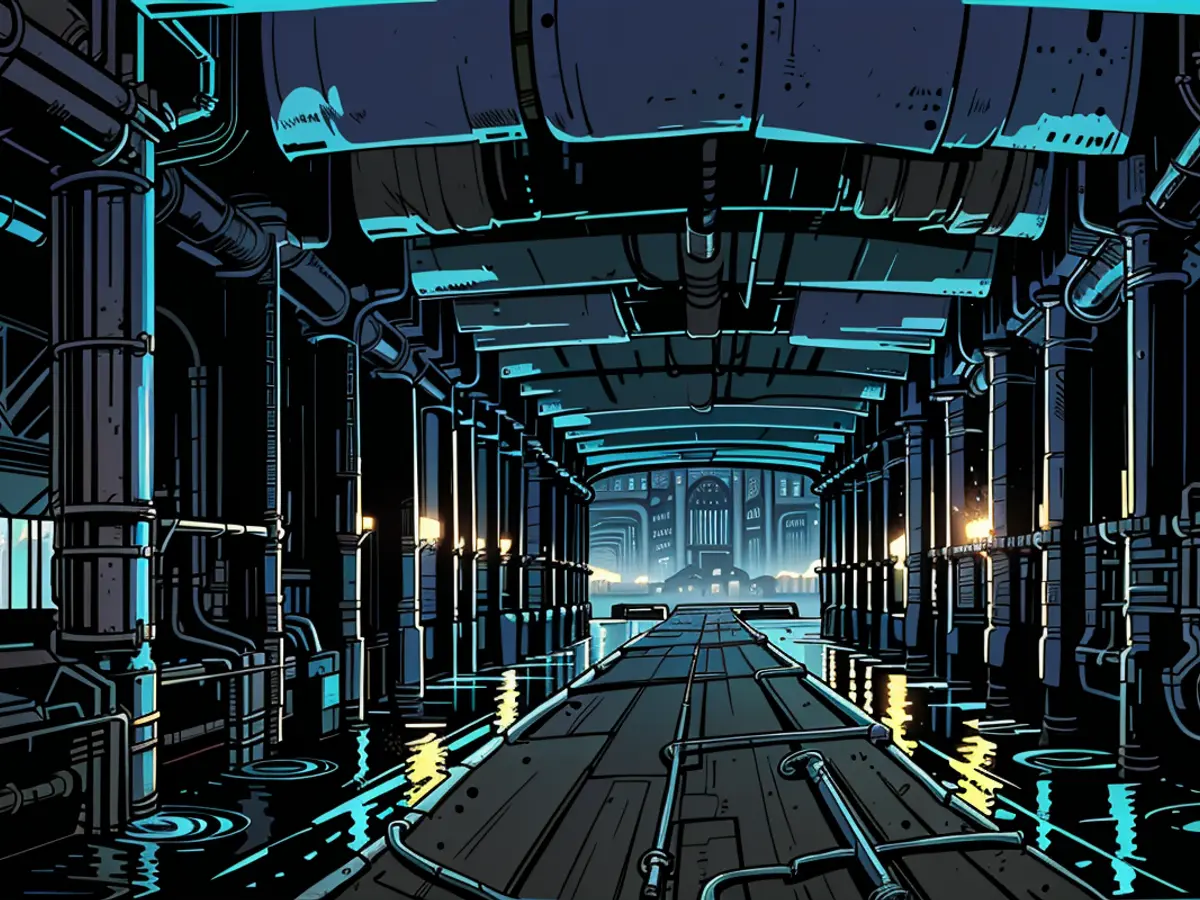- Pressure on the pipes: operators invest in water network
In many regions of Saxony-Anhalt, the number of water pipe breaks in the drinking water network has decreased in recent years. Several operators of public water supply informed the German Press Agency that damages have been continuously reduced through modernizations and investments.
For instance, the Stadtwerke Magdeburg (SVM) reported that there were 67 water pipe breaks last year, compared to 132 cases 20 years ago. In other areas like Wernigerode, the Börde, or Salzwedel, the trend is similar. According to a report by the Federal Association of Energy and Water Industry from March, water suppliers reported a relatively low damage rate in the observed period of 2022.
Even young networks require investment
The average age of the pipe network in Saxony-Anhalt is 38 years. Although companies like SWM expect an average lifespan of 80 to 100 years, the pipeline network in the Magdeburg area is still relatively young. Nevertheless, several kilometers of the network need to be renovated annually.
Other operators also face this challenge. "There are pipelines that are significantly older than the usual depreciation period," says Brigitte Klopstein, CEO of the Stadtwerke Aschersleben. Around 90 percent of the network has been renewed in the last few decades, which has led to a decrease in water pipe breaks and thus a reduction in drinking water losses.
In the Ostharz Association, around two-thirds of the network was built after 1990. However, there are still parts that are significantly older: 12 percent were built before 1945, and 29 percent between 1946 and 1989. The Water and Sewage Association Holtemme Bode describes the condition of the network as "very good to satisfactory" - depending on the location.
Last month, around 1,700 people in the Landkreis Wittenberg were affected by a water pipe break. There, people had to be temporarily supplied with water via water wagons. Last year, a pipe burst in Gardelegen, leaving 6,000 households and the Altmark Clinic temporarily without water.
Damages should be detected faster through software and better monitoring
Water associations are planning multi-million dollar investments in the coming years to keep the networks running. In many places, investments are being made where street work is already taking place. In some cases, better monitoring of the pipelines is also being invested in, for example in Dessau. This should help to detect leaks earlier or make better decisions using software and digital twins of the networks in case of problems.
According to the network operators, damages to the pipelines are due to several factors. These include material fatigue, soil movements due to prolonged drought or heavy traffic loads, and often damages caused by third parties, such as during construction work.
Renovations despite good condition
"Although the state of Saxony-Anhalt generally has sufficient water resources to cover the demand for public water supply, the task bearers must increasingly adapt to the consequences of climate change," the BDEW report states. "In some regions, strengthening and expanding the infrastructure is required to ensure comprehensive water supply in the future." Here, increasing costs and higher investments are mentioned.
"Furthermore, it's worth noting that the transportation and delivery of drinking water is becoming increasingly complex, according to Sebastian Gloger-Hübner of the Halberstadtwerke. 'This will have a long-term impact on prices.' However, it's crucial to ensure the quality and reliability of this vital resource."
Other operators, including the Stadtwerke Aschersleben, face the challenge of renewing pipelines that are significantly older than their typical depreciation period. Including 90% of their network, they have managed to renew a significant portion in the last few decades, leading to a decrease in water pipe breaks and drinking water losses.
Despite having a relatively young network, the pipe network in Magdeburg's area still requires annual renovations, as several kilometers need to be modernized annually, other operators also face similar situations.








